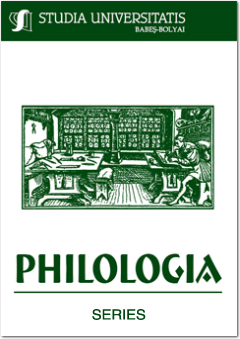LE CIRCONSTANT DE SECONDE PRÉDICATION EN RUSSE
THE “CIRCONSTANTS” IN A SECOND-LEVEL PREDICATION IN RUSSIAN
Author(s): Christine BracquenierSubject(s): Language and Literature Studies
Published by: Studia Universitatis Babes-Bolyai
Keywords: Russian language; “circonstant”; Theme and Rheme; noun complements; verb complements; second-level predication.
Summary/Abstract: The “Circonstants” in a Second-Level Predication in Russian. “Circonstants” or “adverbials”, however they are called, have always been defined negatively: all studies show what they are not. In this paper another definition of “circonstants” is given as a spatio-temporal and causal framework in which the utterance will be correct, and the author considers that the “circonstant” is not a complement. When the “circonstant” is at the beginning of the utterance, it is its Theme, whether known or not by the addressee, but it is given as a spatio-temporal frame; when it is at the end of a clause, it is not very easy to know whether the prepositional phrase is a verb complement or a “circonstant”. Anyway, there are a lot of sentences which are said only to give the spatial or temporal “circumstances” of an event and the “circonstant” is the exclusive Rheme of such clauses. This paper also shows that prepositional phrases which seem to be noun complements are in fact “circonstants” in a second-level predication.
Journal: Studia Universitatis Babes-Bolyai - Philologia
- Issue Year: 56/2011
- Issue No: 2
- Page Range: 143-156
- Page Count: 14
- Language: French

